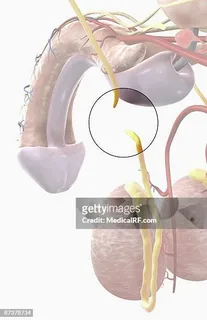Choosing the right hair transplant doctor is one of the most important decisions you will make if you want to restore your hair with natural-looking results. When people search for a hair transplant doctor, they often look for experience, advanced techniques, safety, and real results. In the first step of this journey, understanding what makes a skilled hair transplant doctor stand out is essential. A successful hair restoration does not depend only on surgery; it depends on artistic vision, medical expertise, and the right approach tailored to the patient’s needs. By knowing what to look for, you can confidently select a professional who delivers lasting and natural hair growth.
Understanding the Role of a Skilled Hair Transplant Doctor
A hair transplant doctor does much more than move hair from one area to another. Their role includes analyzing hair loss patterns, assessing donor areas, and planning a long-term solution. A qualified professional studies your hair texture, density, hairline shape, and growth direction before recommending a technique. A skilled specialist will also evaluate your medical history and scalp condition to recommend the most suitable procedure. The ultimate goal is not just filling empty spots but restoring your appearance in a way that looks effortless and realistic.
Why Experience Matters in Choosing a Hair Transplant Doctor
Experience is the foundation of successful hair transplant surgery. When a doctor has been performing hair restoration for years, they understand every detail of the procedure and the artistic skills needed to design natural hairlines. Experienced professionals have performed thousands of surgeries and seen different types of hair loss, scalp structures, and patient needs. This exposure helps them customize each transplant based on age, face shape, and ethnicity. With an experienced hair transplant doctor, patients benefit from predictable outcomes and minimized risks.
Looking for Certification and Medical Background
A well-trained hair transplant doctor should have a strong medical and surgical background. They should be certified in hair restoration or related specializations. Proper medical training ensures they understand both the science and art behind the procedure. Certification also proves that the doctor continues to learn and update their skills, which is important because hair transplant technology keeps evolving. Patients should research whether the doctor has relevant surgical experience and training in advanced techniques.
Evaluating Hair Transplant Techniques Used by the Doctor
Modern hair restoration offers multiple techniques, and an expert hair transplant doctor should master more than one. The most popular methods include smart FUT and smart FUE, and both offer unique benefits. A skilled specialist knows which technique suits each patient based on hair type, donor availability, and expectations. Some doctors combine techniques for better results, while others use advanced methods like Smart FUT or microscopic grafting to improve density. Always choose a doctor who focuses on quality grafts, minimal scarring, and long-term growth.
The Importance of an Artistic Approach in Hair Transplantation
Hair restoration is not just a clinical procedure; it is an art. A hair transplant doctor must understand how to design a natural hairline that complements your face shape and age. A youthful hairline for someone older will look unnatural, while a flat, straight line for certain face shapes will appear artificial. The doctor must also place each follicle at a specific angle so the hair grows in the right direction. The aesthetic sense of the doctor determines whether people can tell you had a transplant. Natural density, balanced coverage, and symmetry are all results of artistic skill combined with medical expertise.
Checking Before and After Results
Visual proof is one of the best ways to evaluate a hair transplant doctor. Before and after photos show how well the doctor restores density, creates natural hairlines, and handles different hair loss cases. However, photos should show consistent results, not just rare successful cases. Look for close-up images that display angles, graft placement, and hairline design. A reliable doctor will proudly share results without exaggeration or editing. Real outcomes reflect true talent and consistency.
Reading Patient Reviews and Testimonials
Patient experiences tell more than advertisements ever could. Reviews reveal how a hair transplant doctor interacts during consultations, how they manage expectations, and how they care for patients before and after surgery. Authentic testimonials highlight improvements in confidence, not just appearance. Pay attention to whether patients mention natural results, comfort during surgery, and support throughout recovery. A good reputation is built through satisfied patients, not marketing claims.
Understanding the Consultation Process
The consultation is your first personal experience with a hair transplant doctor, and it should be informative and honest. A dedicated specialist will take time to examine your scalp, explain treatment options, and answer questions. They should not pressure you into surgery but instead educate you on your diagnosis and expectations. A good consultation includes scalp analysis, discussion of graft numbers, explanation of techniques, and a realistic preview of results. A professional who respects your time and concerns will likely respect your results as well.
Importance of Customized Treatment Plans
Every individual has a unique hair loss pattern, and a one-size-fits-all treatment never works. A hair transplant doctor must create customized plans that include donor management, hairline design, density planning, and long-term preservation of remaining hair. Personalized care ensures that surgery does not just solve hair loss today but also protects future hair. Customized plans also consider age progression, such as how your hairline should look over time. This prevents a transplant from looking outdated years later.
Evaluating Safety Standards and Hygiene
A reputable hair transplant doctor prioritizes safety and hygiene. The procedure must take place in a clean, well-equipped environment with modern tools and sterilization practices. Hair transplant surgery involves microscopic graft handling, so infection control is critical. The doctor should follow strict medical protocols to ensure patient safety. Proper anesthesia management, careful handling of follicles, and sterile conditions play a major role in achieving successful results and preventing complications.
Technology and Tools Used in Hair Transplant Surgery
The latest technology helps improve hair graft survival and precision. A skilled hair transplant doctor invests in advanced tools like microscopic magnification, digital graft counters, and specialized extraction devices. The use of updated technology reflects the doctor’s dedication to improvement and high standards. Better tools also mean minimal scarring, faster healing, and denser hair growth. Technology alone is not enough without skill, but when combined with expertise, it elevates the outcome of the procedure.
Post-Operative Care and Follow-Up
A good hair transplant doctor understands that the surgery is only part of the journey. Post-operative care ensures that grafts heal properly and grow successfully. Instructions such as washing methods, medications, sleeping positions, and lifestyle restrictions should be clearly explained. Follow-up appointments allow the doctor to monitor progress and address concerns. Excellent follow-up care shows the doctor’s commitment to long-term results and patient satisfaction.
Transparent Pricing and Ethical Practices
Transparency in pricing builds trust. A reliable hair transplant doctor explains the cost clearly, including graft charges, consultation fees, and additional treatments if needed. Hidden fees and aggressive sales tactics are signs of poor ethics. The doctor should never promise unrealistic density or guaranteed results because each patient responds differently. Ethical professionals focus on quality, not selling services. They guide you to make the best decision, not the most expensive one.
Choosing a Doctor Who Uses Patient Education
Patient education empowers people to make informed decisions. A skilled hair transplant doctor educates patients about hair loss causes, long-term hair maintenance, and non-surgical options. They may even suggest medication or lifestyle changes before recommending surgery. Doctors who value education care about the patient’s overall hair health, not just immediate profit. This approach helps the patient understand expectations and feel confident about their decision.
Importance of Long-Term Hair Preservation
Hair transplant success does not end with surgery. Preserving existing hair is equally important, especially for individuals with progressive hair loss. A thoughtful hair transplant doctor may recommend medication, PRP therapy, or nutritional support to maintain native hair. Without preservation, the patient may lose surrounding hair, making the transplant look unnatural later. Long-term planning ensures the hairline looks natural for years, not just after surgery.
Signs of a Trustworthy Hair Transplant Doctor
Several qualities define a trustworthy doctor. They communicate openly, listen carefully, and respond realistically. They focus on patient goals rather than pushing unnecessary treatments. They do not make exaggerated promises or guarantee results. Real professionals show honesty even if it means advising against surgery. They put patient well-being above profit and avoid rushing consultations. These values reflect ethical responsibility and genuine care.
Conclusion
Choosing the best hair transplant doctor is a decision that shapes your appearance, confidence, and long-term satisfaction. A skilled professional combines science, artistry, ethical values, and experience to deliver natural-looking results. You should look for a doctor who offers customized treatment, advanced techniques, safety, transparency, and proper follow-up care. By evaluating experience, technique, aesthetics, technology, and patient feedback, you can choose a doctor who values results as much as you do. Natural hair restoration is not only about growing hair; it is about restoring identity and confidence with precision and care. With the right hair transplant doctor, you can enjoy a transformation that blends seamlessly with your natural appearance and lasts a lifetime.





